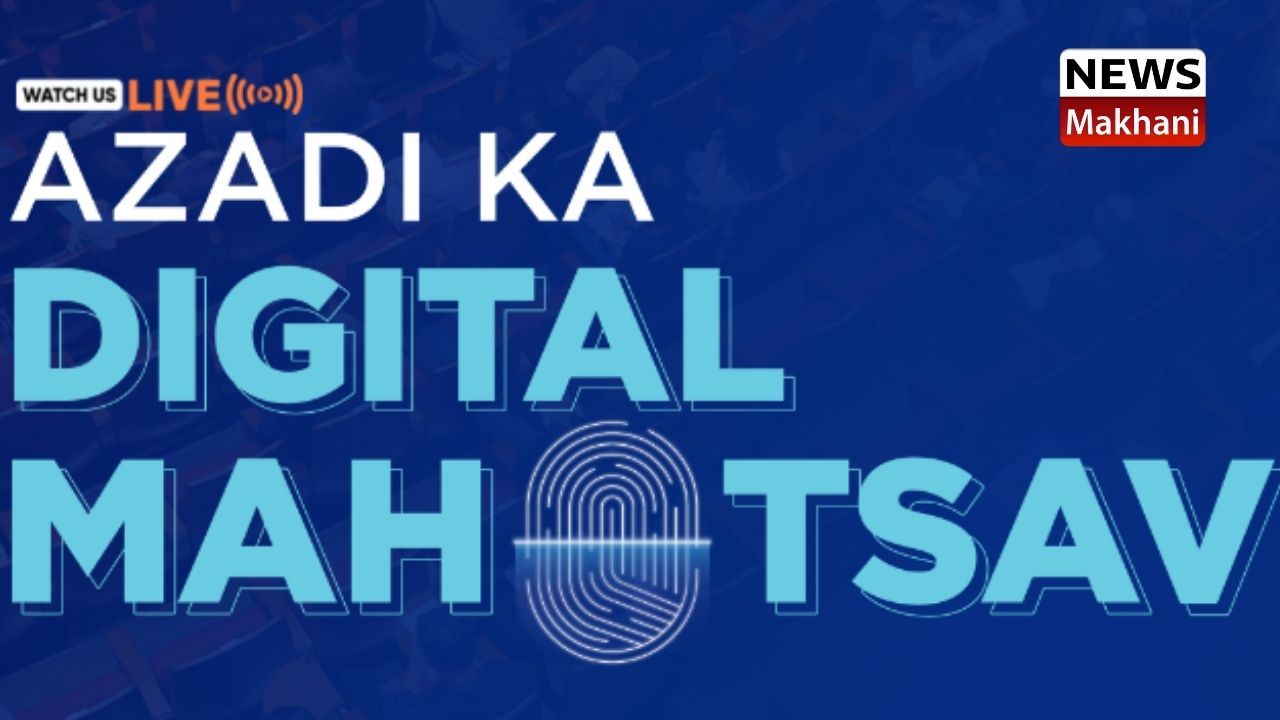MeitY hosts insightful panel discussion on ‘Use of Emerging Technologies for Social Empowerment Blockchain, AR/VR, Drone, IoT, GIS’
In continuation of the celebration of Azadi Ka Digital Mahotsav week from Nov 29 – Dec 5, the second session of day 2 i.e. 30th November, 2021, witnessed insightful discussions on the use of emerging technologies like AI, Blockchain, drone and geospace. Driven by our Hon’ble Prime Minister’s vision of an AatmaNirbhar Bharat, Digital India is paving the way forward to fulfil our PM’s vision of a rising new India, where technology has the power to unleash the vast potential of our citizens, and improve their lives, bringing in transparency and inclusive development.
READ MORE :-PM greets people of Nagaland on their Statehood Day
Shri Abhishek Singh, President & CEO, NeGD highlighted the importance and role of emerging technologies for digital transformational and effective implementation of Digital India initiatives for social benefit. He also enumerated various activities on emerging technologies undertaken by Government, industry and academia.
Dr. Neeta Verma (DG, NIC) talked about the significance and potential of Artificial Intelligence (AI) and how it can bring “true social empowerment” by overcoming literacy and language barriers in India.
“AI has immense possibilities and huge potential. During the COVID-19 pandemic, when government officials were not available, we made chatbots using AI for anyone to procure the required information,” said Dr. Neeta Verma. She said that there are around 20-30 crore people in India who either do not have smartphones or are facing language and literacy barriers to use the technology.
“We need to build voice interfaces in all government applications to gradually eradicate language challenges. AI can do true social empowerment and also needs a lot of research, innovation, capacity building & regulatory support to change the lives of the people at the bottom of the pyramid. We all have to work together & make this change happen,” Dr Neeta Verma explained.
Dr. Neeta Verma also explained how NIC set up the Centre of Excellence and Artificial Intelligence in 2019 with an aim to explore the potential of AI in governance.
Centre of Excellence has been able to create and roll out several pilots at the state and national level to improve efficacy of governance. Swacch Bharat Urban, Verify ID, driving license renewal systems using face recognition, and Khoya Paya to locate missing children are some of the examples Dr Neeta Verma gave during her address to explain the use of AI in improving ease of business and e-governance in India.
Dr. Lalitesh Katragadda (Founder, Indihood) has joined the panel through video-conferencing to explain how the new India Maps Policy 2021 is revolutionary when compared to the old geospatial era.
“India Maps policy 2021 is revolutionary because it has zero restrictions on Indian Companies unlike the old policies which required several licences,” said Dr. Lalitesh.
He said that with new tools we can take real time mapping using AI and Data science. “Ability to map is more important than the map itself. People are the purest map makers. Small and average farmers have 1-2 acres of land with land value of 20 lakh, but struggle to get a loan of even 30-40 thousand. This can be solved with land mapping,” he said.
He added: “Maps can be used to check the penetration of various services across the globe and gain insights about the impact on ground. 2021 will be remembered as the dawn of the Indian GeoSpatial Era. Backed by a revolutionary policy, Indegenous maps and mapping technology is poised to grow explosively.”
Meanwhile, Shri Amit Sinha (IG Telecom & Director Vigilance, Uttarakhand) talked about the Drone application research centre in Uttarakhand and recalled the importance of drones during rescue operations after the Uttarakhand disasters.
“A couple of years ago in Uttarakhand we had the Rani village disaster in Chamoli by glaciers. The drone team had helped in restoring Optical fibre connections disrupted by the incident, carried the wire across the river, and restored the communication network there,” he said.
On the other hand, Prof. Manindra Agrawal (Department of Computer Science & Engineering IIT Kanpur) talked about the common misconception that Blockchain is exclusively for cryptocurrency. He said that blockchain can be used to establish a clean ownership of land and maintain digital land records. “It should be possible for everyone to publicly verify the true owner of the land,” he said.
He added: “Blockchain technology provides the ability to create and maintain unalterable ledgers. There are a number of domains, especially when delivering services to citizens, where maintaining records that cannot be altered is of great importance. For example, land ownership records, database of criminals, and supply-chain logistics”
Shri Shekar Sivasubramanian (Head- Solutions & Operations, Wadhwani AI) concluded the session by emphasizing the need of a multifaceted approach to develop AI-Based solutions which can actually make a difference.
“The most important thing in AI is perseverance. You’ll have to stay with the result for 6-8 months, only then it will become very accurate and precise. AI is about building trust with people, thus, we should keep humans in the loop and move forward with a testing approach,” said Shri Shekhar Sivasubramanian.

 हिंदी
हिंदी






